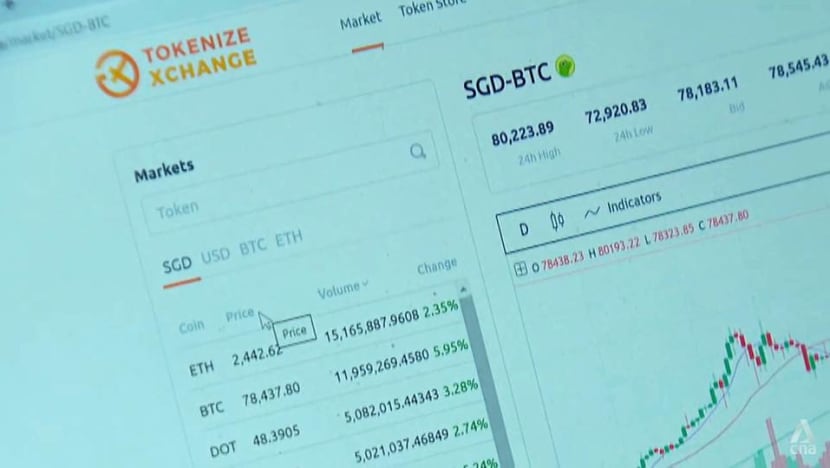AmazingTech, operator of defunct Tokenize Xchange, to be wound up, liquidators appointed
A High Court judge has appointed its interim judicial managers as liquidators.


This audio is generated by an AI tool.
SINGAPORE: The High Court has granted the winding-up application of AmazingTech, the operator of defunct cryptocurrency trading platform Tokenize Xchange, after its interim judicial managers found that liquidation was the only practical way forward.
Tokenize Xchange, a Singapore-based trading platform, made the news earlier this year after its sudden closure left users of the platform unable to withdraw their investments.
In mid-July, Tokenize Xchange announced it would cease its Singapore operations after failing to secure a digital payment token licence from the Monetary Authority of Singapore (MAS). It had been operating under a temporary exemption before that.
More bad news emerged on Aug 1 when the Singapore Police Force and the MAS said that AmazingTech and its related entities were under probe for potential offences, including fraudulent trading.
Hong Qi Yu, a director of AmazingTech and the founder and CEO of Tokenize Xchange, was charged on Jul 31 with fraudulent trading. His case is pending before the courts and will next be mentioned on Nov 13.
On Aug 15, 2025, a group of seven investors succeeded in getting the High Court to have AmazingTech placed under interim judicial management.
Corporate advisory and restructuring firm KordaMentha's Mr Cameron Duncan, Mr David Kim and Mr Joshua Jeyaraj were appointed as interim judicial managers. They were directed to assess the prospects of the company and to submit a report detailing its findings.
Judicial management is a method of debt restructuring where an independent judicial manager is appointed to manage the affairs, business and property of a distressed company, according to SingaporeLegalAdvice.com.
In its findings, the interim judicial managers proposed that AmazingTech be wound up.
They noted that the company was "heavily insolvent" with about S$267 million (US$207 million) in liabilities, almost all of it owed to customers of the platform.
The interim judicial managers found that AmazingTech would be unable to pay its debts and was no longer viable and proposed transitioning it into liquidation as the "most appropriate avenue to maximise recovery for the creditors", they stated in a press release issued then.
HIGH COURT JUDGE GRANTS WINDING-UP APPLICATION
Justice Philip Jeyaretnam granted the winding-up application.
In his judgment, dated Sep 30, but published on Friday (Oct 3), the High Court judge accepted the interim judicial managers' report and its finding that liquidation was the "only practical way forward".
He noted several points raised by the report, including how:
- AmazingTech was insolvent with no revenue, with its total liabilities far exceeding its assets
- AmazingTech has ceased operations and is unable to lawfully resume operations since its licence application in Singapore has been rejected
- There was no real possibility of preserving part of the business as its operations are too dependent upon its exchange platform that cannot be operated without a licence
- While AmazingTech was insolvent, it potentially engaged in wrongful trading, which has incurred debts and asset loss "with no reasonable chance of repayment"
On the issue of liquidators, Justice Jeyaretnam noted that this was "more contentious" as some of the creditors were in support of the interim judicial managers being appointed, while others supported alternative nominees.
He ultimately decided that the interim judicial managers should be appointed as liquidators, in part because they had experience dealing with AmazingTech and had familiarised themselves with its financial situation during their stints as interim judicial managers.
Justice Jeyaretnam found that appointing the interim judicial managers as liquidators would present significant savings in time and cost. He said that those who were opposed to this arrangement also had not managed to establish "any reasonable perception of bias" from the interim judicial managers.














